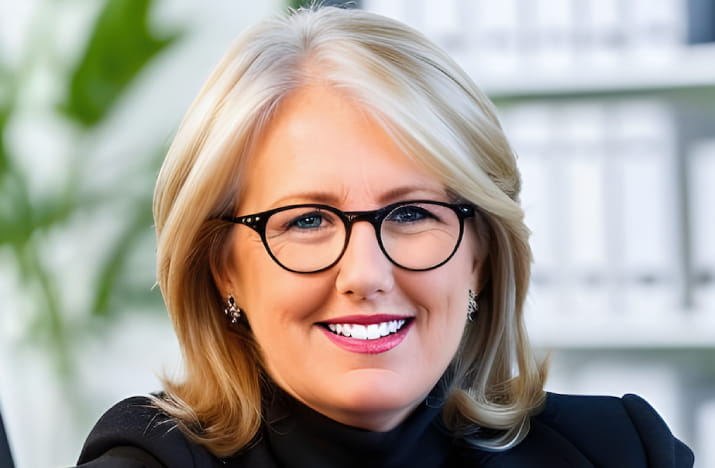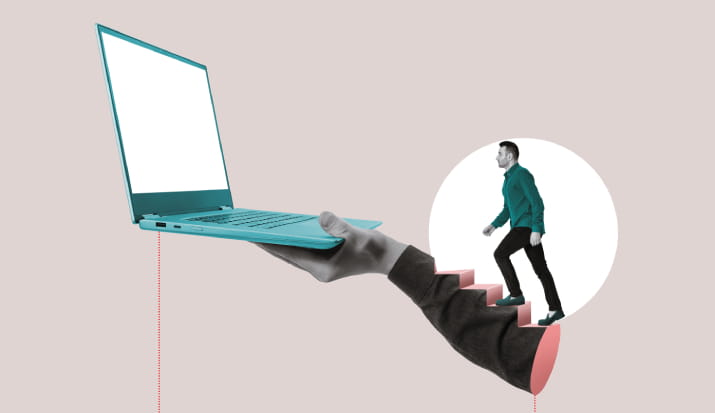Meet the women making their mark in AI
A world driven by AI may be on the horizon, but thus far the majority of those at the helm of its advances are men. While women in AI may be scarce, a sprinkling of trailblazers are paving the way for a more even-handed future.

Artificial intelligence (AI) is fast becoming a mainstay of modern living. And while it might appear neutral at the surface, behind the scenes it’s far from equitable.
A 2019 report from UNESCO revealed gender disparity is rife across all facets of the technology industry, with the gender gap widening at the crux of education (secondary and tertiary level). There’s an obvious flow-on effect into the career space.
You don’t have to look too far for an example of the gender divide either. Simply open your browser and you’ll likely be faced with one of the world’s leading AI tech companies: Google. At Google, women make up less than one third of the workforce, with even less at the top of the ladder in leadership roles, according to the UNESCO report.
This lack of gender diversity is representative of other technology companies across the globe. The World Economic Forum reports women are grossly unrepresented in AI and the tech industry, suggesting women in IT account for only 26% of data and AI positions.
What percentage of AI researchers are women?
According to research by Element AI and Wired magazine, just 12% of AI researchers are women. Their study focused on 4,000 researchers who have been published at leading conferences, and it found a stark contrast in the gender divide between AI researchers across 23 countries. The largest proportion of women in AI research came from Taiwan with a fraction over 26% women. The biggest disparity was in Sweden, where 100% were men.
While there’s still a long way to go to close the gap, a growing number of women are shaking up the status quo.

Mary-Anne Williams, trailblazer in AI research
Professor Mary-Anne Williams has been at the fore of AI for decades. Somewhat of a pioneer for women working in AI Prof Williams gained her PhD in the field around three decades ago.
“I was one of the few women who gained a PhD in Computational AI last century,” Prof Williams says.
I was curious about computing because it is a powerful tool for solving problems. I wanted to find out more about how to use it to help drive business transformation and to understand how human intelligence works."
Now she holds the highly respected title of Michael J Crouch Chair in Innovation, working with a team to design new courses in business innovation. She was also part of the team that created the UNSW Business AI Lab in 2022, which now has more than 80 researchers across all disciplines focusing on generating business value using AI technologies.
Prof Williams’s research centres around AI-human collaboration. Her research has discovered new ways to model how people change their minds when they learn additional information.
The results are used to design robots with emotional and social intelligence and to develop business strategies that drive AI innovation for large companies like Roche, the Commonwealth Bank and numerous early-stage startups.
- Related reading: Will AI take my job?
Prof Williams says her career has been full of unexpected and serendipitous opportunities.
“I have had the chance to meet and work with amazing people from Alan Alda and Charles Darwin’s granddaughter when they were doing discovery documentaries on the human mind and robot design. Steve Wozniak, co-founder of Apple, [is] a member of my team in the UNSW Business AI Lab.
"I met John McCarthy, the Stanford professor who coined the term ‘Artificial Intelligence’, at an AI poetry slam.”

Alison Kettle, leading AI and tech education
When it comes to inspiring women in IT, Alison Kettle is a force for change. Ally is Programme Development Manager, leading AI and tech education for Queenstown Resort College.
“I currently construct and write our technology curriculum courses while educating executives and corporate leaders in Australia and Aotearoa (New Zealand) on the ever-evolving landscape of technology and artificial intelligence.”
She says one of the best parts of her job is that it's always changing. "Nothing is ever the same and nothing is ever boring in this field.”
Ally hopes to inspire more women to seek out AI-centric careers.
I really do hope that, as a strong, ambitious female leading a large technology push in Queenstown, Aotearoa, it will encourage other young women around me to step into a mainly male dominated area.”
Why do we need more women in AI?
At a time when all facets of life are impacted by or led by some form of tech, the glaringly obvious gender gap would benefit from some readjustment. Not only for representation but to better reflect the diverse ways of thinking within society as a whole.
Prof Williams says gender diversity in AI is vital because “diverse teams can better recognise and address biases, leading to fairer AI systems.” She says without diversity, AI risks perpetuating societal biases and missing out on comprehensive solutions.
Ally says gender diversity matters because men and women think differently. “Every single person on planet earth has a different way of calculating information, of learning things. Humans understand this—now it is time to train our robotic algorithms to understand and process the same level of broad comprehension.”
Want to forge your own path in artificial intelligence? Discover online AI courses that explore this exciting new world of technology.



